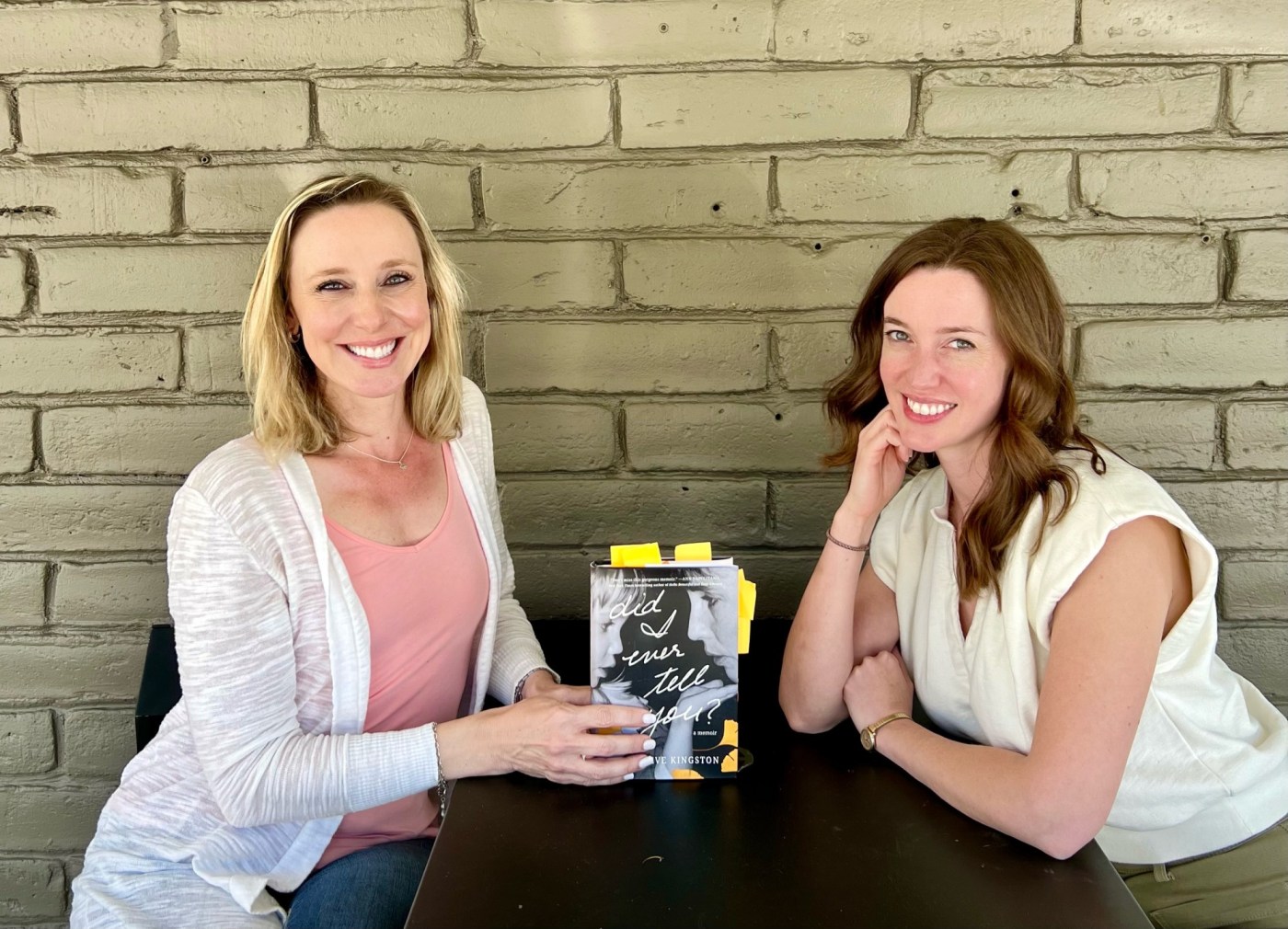“Some nights, when my parents’ voices rose the loudest, I would leave my hiding place and walk out into the middle of their battleground. Standing between them, I would scream, or cry, or knock something over, anything I could think of to draw their attention away from each other and onto myself. It was safer for them to be angry with me, because I, at least, would always be forgiven,” writes Genevieve Kingston in her debut memoir, “Did I Ever Tell You?”
This line has a powerful impact when juxtaposed with the opening of the book: “When I was 3 years old, my mother learned she had an aggressive form of breast cancer.”
Setting the stage for a compelling and unexpected journey for the reader, Kingston’s pages are brimming with wisdom of a young child, who had to grow up fast, contend with the concept of loss on multiple fronts, and learn the true meaning of forgiveness.
In 2021, Kingston, who grew up in the Bay Area, published a Modern Love essay in the New York Times titled “She Put Her Unspent Love in a Cardboard Box.” It tells the story of her terminally ill mother leaving a cardboard chest of letters and gifts for Kingston and her older brother to be opened postmortem. The essay gave birth to her page-turning memoir, a life story that transcends the narrative of grief, delving into themes of parenthood, mental health, forgiveness and love. Her memoir — published in April — is currently in translation in 12 languages and set to be released in 16 more countries later this year.
Kingston’s poignant storytelling held me spellbound from the first to the last page, guiding me through her childhood and adolescence, breaking my heart into pieces, then cementing them back together with the enduring power of love. While the backdrop is shaped by trauma and profound loss, Kingston’s story is a testament to the human spirit’s resilience and capacity for forgiveness and healing — something we crave in today’s world. In her distinct voice, Kingston, who now lives in Brooklyn, extends an invitation to readers to delve into the psyche of a child coping with the unique challenges of her coming-of-age journey. I didn’t need to have endured similar traumas to find resonance in her emotions, as she skillfully draws upon the wisdom and love imparted by her mother to capture the spirit of our times. It is this very treatment of “time” that is at the heart of her story. Unlike most children, young Kingston yearns to stay rooted in the present because the future is scary. For Gwenny — as Kingston was known as a child — growing up meant she would be closer to her mother’s looming death.
Besides love, forgiveness is another underlying theme in the book. In a powerful scene, Kingston recalls her father asking if there is anything she’d like to say to her mother before she dies. Kingston mulls over lingering feelings of guilt, and later that night, with a heavy silence hanging in the air as she sits with her mother, wrestles with the words she longs to express. With a quiet intensity, she ventures to breach the topic, hoping her mother would guide her toward her own revelations.
She writes, “I would have told her I felt guiltiest of all that part of me wanted this to finally be over, so I could begin to remember her the way she used to be, instead of the way she was now.”
It is a raw, vulnerable moment of wanting to make that step into a future she had been resisting and fearing.
Related Articles
A new cookbook from one of California’s oldest markets offers abundant picnic inspiration
Cupertino nonprofit helps local students go back to school
New memoir says Roseanne Barr required her writing staff to wear numbered T-shirts to avoid her having to learn their names
How Michael Crichton’s widow Sherri got James Patterson to finish ‘Eruption’
New information about the mystery of Janet Halverson, book design icon, surfaces
In an interview, I asked Kingston about this moment, and she shared that “as kids we often feel our thoughts can make things happen or prevent things from happening in the world. Small children have interiority that they often can’t articulate yet. At that point, I didn’t say anything but had this longing of Mom, please, help me to say how I feel because I don’t know how to express it yet. My mom was so good at helping me say what I felt and process it. At that point in her illness, she was too far along to do so. There was that sensation of feeling impatient and I had a ton of guilt around the idea that death might give me some relief.”
In my conversation with Kingston, I couldn’t help but marvel at her courageous act of not only forgiving the fate that had cut her mother’s life short but also at the empathy she is able to bestow upon herself now.
At its core, Kingston’s memoir is a celebration of the bond between mother and daughter, a testament to the indomitable strength of the human heart and a poignant reminder of the transformative power of love amidst life’s greatest challenges. “Did I Ever Tell You?” is a story that reminds us, as Kingston writes, “that love is stronger than death.”
Britta Stromeyer, of Mill Valley, is an award-winning children’s author, writer and creative writing teacher. Her nonfiction articles and essays have appeared in print and online magazines and journals, including Off Campus Writers’ Workshop’s About Write and Marin Mother’s Magazine. IJ readers are invited to share their stories of love, dating, parenting, marriage, friendship and other experiences for our How It Is column, which runs Tuesdays in the Lifestyles section. All stories must not have been published in part or in its entirety previously. Send your stories of no more than 600 words to lifestyles@marinij.com. Please write How It Is in the subject line. The IJ reserves the right to edit them for publication. Please include your full name, address and a daytime phone number.












